
Overview
Consumer electronics refers to a wide range of electronic devices designed for everyday use by individuals for entertainment, communication, productivity, and convenience. These devices are typically designed to be user-friendly, affordable, and accessible to the general public. Consumer electronics encompass a diverse array of products.
Depending on specific features and functions, GAO Tek’s LCR meter are sometimes referred to as Impedance Analyzer, Phase Angle Meter, Component Tester, Complex Impedance Meter, Inductance-Capacitance-Resistance Analyzer, Network Parameter Analyzer, Electronic Component Characterizer AC Parameter Tester, Frequency Response Analyzer, Phase Angle Analyzer, LCZ Meter, Reactance Tester, Electro-Component Impedance Analyzer, AC Reactance Meter, Electrical Component Impedance Meter, AC Phase Meter, Inductive-Capacitive Reactance Meter
GAO Tek’s LCR meter have the following applications in consumer electronics
- Filters: LCR components are often used in filters that allow specific frequencies to pass while attenuating others. They are used in audio systems, radio receivers, and communication devices to eliminate noise and interference.
- Tuning Circuits: Inductors and capacitors are crucial in tuning circuits, enabling devices like radios and televisions to select specific frequencies or channels.
- Power Management: Inductors are used in power management circuits, such as voltage regulators and DC-DC converters, to store and release energy efficiently.
- Signal Processing: Capacitors are integral to coupling and decoupling signals in amplifiers, signal processing circuits, and audio systems. They help remove unwanted DC components from signals.
- Timing Circuits: Capacitors and resistors are used in timing circuits that control the timing of events in devices like oscillators, timers, and pulse generators.
- Audio Systems: LCR components play a role in speaker crossovers, impedance matching networks, and tone control circuits, contributing to the sound quality and performance of audio systems.
- Touchscreens: Capacitive touchscreens rely on the change in capacitance when a user’s finger approaches the screen. This change is detected and used to register touch gestures.
- Sensors: Capacitive and inductive sensors are employed in various consumer electronics, including proximity sensors, humidity sensors, and touch-sensitive buttons.
- LED Lighting: Capacitors and inductors are used in LED drivers and lighting control circuits to regulate current, voltage, and power factor.
- Battery Charging: Inductors are used in charging circuits to regulate the current flowing into batteries, ensuring safe and efficient charging.
- Electronic Displays: Capacitors and inductors can be found in the driver circuits of electronic displays like LCDs and OLEDs.
- Signal Coupling and Decoupling: Capacitors are used for coupling signals between different stages of amplification and for decoupling power supply noise from sensitive circuitry.
- Voltage Regulation: Resistors are used in voltage dividers, which help regulate voltage levels in various parts of a circuit.
- Temperature Compensation: Certain LCR components, like thermistors (resistors with temperature-dependent resistance), are used for temperature compensation in circuits.
- Motor Control: Inductors and capacitors are employed in motor control circuits, which are used in various consumer devices, from household appliances to fans.
More information on LCR meter and their applications in other industries can be found on this page
Research, Technology & Professional Services Industries | RFID Solutions
This category page lists related products
Complying with Industry Standards
GAO Tek’s LCR meter comply or help our customers comply with the industry standards such as
- IEEE Std 1241TM
- IEC 61010-1
- IEC 61331-1
- IEC30051-3
- IEC 60044-1
- ASTM E2388
Complying with Government Regulations
GAO Tek’s LCR meter comply or help our customers comply with the U.S. government regulations such as
- Federal Communication Commission Regulations
- Environmental Regulations
- Safety Regulations
- Labeling and Documentation
- Energy Efficiency
- Intellectual Property and Patents
- Import and Export Regulations
GAO Tek’s LCR meter comply or help our clients comply with the Canadian regulations such as
- Industry Canada Regulations
- Electromagnetic Compatibility Regulations
- Health Canada Regulations
- Environmental Regulations
- Labeling and Marking Requirements
- Safety Standards
- Energy Efficiency Regulations
- Import and certification Requirements
GAO Tek’s LCR meter comply or help our clients comply with the Mexican regulations such as
- NOM Standards
- Energy Efficiency Regulations
- Import and Certification
- Labeling Requirements
- Waste Management and Recycling
- Custom and Import Regulations
- Radiofrequency and Electromagnetic Compatibility
GAO Tek’s LCR meter comply or help our clients comply with the European regulations such as
- CE Marking
- Low Voltage Directive 2014/35/EU
- Electromagnetic Compatibility Directive (EMC) 2014/30/EU
- RoHS Directive 2011/65/EU
- WEEE Directive 2012/19/EC
- Ecodesign Directive (2009/125/EC)
- EN Standards
Case Studies of LCR Meter in Consumer Electricals
LCR meter are sometimes called as Impedance Analyzer, Network Analyzer, Component Tester, RLC Meter, Electrical Characterization Device, Passive Component Analyzer, Complex Impedance Meter, Inductance-Capacitance-Resistance Analyzer, Frequency Response Analyzer, Phase Angle Meter, AC Impendence Tester, Component Impedance Meter, Electrical Parameters Analyzer, Reactance Analyzer, Electro-Component Tester, Phase Shift Meter, AC Characterization Meter, Electro-Component Impedance Analyzer, Complex Circuit Analyzer, AC Impedance Characterization Meter.
Here are some practical examples of using LCR meter in consumer electricals:
LCR meters are used to test the quality and consistency of components like capacitors, inductors, and resistors in smartphones produced by companies based in the Northeast. Ensuring the right values of these components helps maintain the performance and reliability of the devices.
LED lighting manufacturers in the Northeast utilize LCR meters to assess the characteristics of inductors, capacitors, and resistors in lighting circuits. Accurate component values contribute to the longevity and performance of LED products.
Manufacturers of home appliances such as washing machines, microwave ovens, and refrigerators use LCR meters to verify the quality and reliability of electronic components within these devices. This ensures consistent performance and safety.
Northeast-based audio equipment manufacturers employ LCR meters to validate the specifications of components used in amplifiers, speakers, and other audio systems. This ensures optimal sound quality and performance.
Companies producing heating, ventilation, and air conditioning (HVAC) systems in the Northeast use LCR meters to test the electrical components that control these systems. Accurate components contribute to energy efficiency and system reliability.
LCR meters play a crucial role in testing electronic components for medical devices manufactured in the Northeast. These devices require precise components to ensure accurate and safe operation.
Northeast-based automotive electronics manufacturers utilize LCR meters to test components used in vehicle electronics systems. This includes components in infotainment systems, engine control units, and safety systems.
Repair shops in the Northeast utilize LCR meters to diagnose and troubleshoot faulty components in devices such as TVs, gaming consoles, and audio equipment. This aids in efficient and accurate repairs.
Manufacturers of power tools in the Northeast region use LCR meters to ensure the quality of electronic components in tools such as drills, saws, and sanders. Reliable components contribute to the durability of the tools.
Companies producing electronic toys in the Northeast utilize LCR meters to assess the components used in these toys, ensuring compliance with safety regulations and consistent performance.
A major appliance manufacturer in the Midwest utilizes LCR meters to ensure the consistent quality of capacitors and inductors used in their products. By accurately measuring component values, the manufacturer can identify any deviations that might impact the performance and lifespan of their appliances.
A heating, ventilation, and air conditioning (HVAC) service company employs LCR meters to diagnose faulty components in the control circuitry of residential HVAC systems. The meters help technicians identify defective capacitors and inductors that could lead to improper system functioning.
A startup in the Midwest develops smart home devices, including smart lighting systems and wireless chargers. LCR meters play a crucial role in verifying the characteristics of components such as inductive coils and capacitive touch sensors, ensuring optimal performance and user experience.
A research institute focused on renewable energy explores the use of LCR meters in optimizing the efficiency of solar power inverters. By accurately measuring the inductance and capacitance of various components, researchers aim to enhance the energy conversion process and improve system reliability.
An automotive electronics company employs LCR meters to analyze the inductance and capacitance of wiring harnesses and connectors used in electric vehicles. This helps identify potential areas of signal interference and allows for design improvements.
A medical equipment manufacturer uses LCR meters to verify the integrity of components in electronic medical devices produced in the Midwest. Capacitance measurements, for instance, are critical in ensuring the proper functioning of sensors and precision instruments.
A local electronics repair shop uses LCR meters to diagnose and repair issues in devices such as televisions, audio systems, and gaming consoles. The meters help pinpoint faulty capacitors and inductors that might be causing performance problems.
A company specializing in agricultural machinery maintenance employs LCR meters to troubleshoot electrical issues in farm equipment. By analyzing the capacitance and inductance of wiring and control components, they can quickly identify and address problems in the field.
A manufacturer of energy-efficient lighting fixtures uses LCR meters to ensure the consistent performance of ballasts and drivers in their products. This helps maintain the desired luminosity and stability of the lighting systems.
An educational institution in the Midwest integrates LCR meters into its electrical engineering curriculum. Students learn hands-on skills by using the meters to analyze and measure inductance, capacitance, and resistance in various circuits.
Investigate how a large appliance manufacturing company in the South Region uses LCR meters to ensure the quality of components like capacitors and inductors in their products, thereby maintaining consistent performance and reliability.
Explore how smartphone assembly plants in the South Region employ LCR meters to test tiny components like surface-mount capacitors and inductors, ensuring optimal functionality of devices.
Study how automotive electronics manufacturers in the South utilize LCR meters to verify the integrity of components such as airbag sensors, ignition system components, and communication modules.
Examine how aerospace companies based in the South Region employ LCR meters to evaluate the performance of electronic components in avionics systems, satellites, and communication devices.
Investigate how lighting manufacturers in the South Region use LCR meters to assess the characteristics of capacitors and inductors in energy-efficient LED lighting systems, ensuring longer lifespans and improved performance.
Explore how electronics repair shops in the South Region use LCR meters to diagnose faulty components like capacitors and inductors in various consumer electronics, expediting the repair process.
Study the application of LCR meters in the South Region’s renewable energy sector, such as assessing the quality of inductive components in solar inverters and wind turbine control systems.
Examine how medical device manufacturers in the South utilize LCR meters to verify the performance of components in devices like patient monitors, MRI machines, and diagnostic equipment.
Explore how companies involved in heating, ventilation, and air conditioning (HVAC) systems in the South Region employ LCR meters to ensure the reliability of capacitors and inductors in various HVAC components.
Investigate the use of LCR meters by home automation device manufacturers in the South to test components like sensors, actuators, and communication modules for seamless integration into smart home systems.
A consumer electronics manufacturer in Silicon Valley utilizes LCR meters to test the quality of the components used in smartphone chargers. They ensure that the capacitors, inductors, and resistors meet the required specifications, contributing to reliable and efficient charging products.
A high-end audio equipment company in Los Angeles employs LCR meters to evaluate the performance of capacitors and inductors used in their premium speakers. Precise component analysis helps maintain superior sound quality and acoustic performance.
A gaming console manufacturer in Seattle employs LCR meters as part of their automated testing process for circuit boards. This ensures that the components related to power delivery and signal integrity meet stringent standards, resulting in reliable and robust gaming consoles.
A company responsible for maintaining electric vehicle charging stations in the Bay Area uses LCR meters to diagnose and troubleshoot issues related to the charging cables and connectors. This helps ensure the safety and efficiency of charging infrastructure.
A solar technology company in Southern California utilizes LCR meters to verify the quality of capacitors and inductors used in solar panel inverters. Ensuring the reliability of these components contributes to efficient energy conversion and system longevity.
A smart home automation company in Arizona employs LCR meters to analyze components in HVAC (heating, ventilation, and air conditioning) systems. This ensures optimal energy efficiency and performance in temperature control systems.
A wearable health tech manufacturer in San Francisco uses LCR meters to assess the quality of components in devices like heart rate monitors and fitness trackers. Accurate component analysis supports the accuracy of health-related measurements.
An LED lighting manufacturer in Portland utilizes LCR meters to test the electronic components in their lighting systems. Ensuring the quality of components like capacitors and inductors contributes to the longevity and reliability of LED products.
A home automation company in Denver employs LCR meters to test components used in smart home systems. This helps guarantee the durability and performance of devices like smart switches, outlets, and sensors.
A renewable energy company in Northern California uses LCR meters to analyze components in energy storage systems, such as batteries and capacitors. Reliable components are crucial for maintaining energy storage efficiency.
A manufacturer of high-end audio equipment in Canada uses LCR meters to ensure the quality and consistency of components such as capacitors and inductors used in their products. By precisely measuring component values, the company can maintain the desired audio performance across its product line.
A consumer electronics company focuses on producing charging cables and adapters for smartphones and laptops. LCR meters are employed to assess the integrity of the cables’ internal wiring, detecting any variations in capacitance and resistance that could affect charging efficiency and safety.
A watch company that produces electronic timepieces employs LCR meters to verify the accuracy of the quartz crystals used in their watches. By measuring the resonance frequency and capacitance of the crystals, they ensure that the watches maintain precise timekeeping.
A manufacturer of LED lighting products uses LCR meters to evaluate the performance of LED drivers and ballasts. These measurements help ensure that the lighting products meet regulatory standards, maintain optimal power efficiency, and avoid flickering issues.
A company specializing in smart home devices utilizes LCR meters to validate the properties of various components like sensors and actuators. By confirming the inductance and capacitance values, they can guarantee the proper functioning of devices such as smart thermostats and motion detectors.
In the realm of electric vehicles, LCR meters are employed to test the charging connectors and cables. The measurements help ensure the safety and efficiency of the charging process, while also detecting any irregularities in the components that could lead to overheating.
A gaming peripherals manufacturer uses LCR meters to assess the properties of switches and buttons in controllers and keyboards. This ensures consistent tactile feedback and response times in their .
A company that produces household appliances, such as microwave ovens and refrigerators, utilizes LCR meters to test components like capacitors and relays. These measurements contribute to the reliability and longevity of the appliances.
LCR meters are integrated into the quality control process of a smartphone manufacturer to validate the performance of components like touch screen sensors and vibration motors. This helps deliver a consistent user experience.
A manufacturer of power adapters for various consumer electronics employs LCR meters to verify the electrical properties of the transformers and capacitors within the adapters. This ensures stable power output and minimizes the risk of damage to connected devices.
Explore how LCR meters are used in the quality control process of manufacturing household appliances like refrigerators, air conditioners, and microwaves. Case studies could focus on how manufacturers in Mexico ensure consistent component characteristics to maintain product reliability and performance.
Investigate the role of LCR meters in evaluating the electrical properties of LED lighting systems used in homes and offices. Case studies could examine how Mexican lighting companies use LCR measurements to ensure optimal performance and energy efficiency.
Look into how LCR meters are utilized in electronics repair shops across Mexico. Case studies could showcase how technicians diagnose and fix issues in consumer electronics such as TVs, sound systems, and gaming consoles using precise LCR measurements.
Explore the testing of smart home devices like smart plugs, thermostats, and voice assistants using LCR meters. Case studies might delve into how Mexican companies ensure compatibility and safety of these devices within home electrical .
Investigate how LCR meters are employed by electricians and contractors to assess the quality of electrical wiring in residential buildings. Case studies could illustrate how LCR measurements help detect faults and irregularities in wiring systems, ensuring safety and compliance.
Examine how LCR meters are used to analyze the internal components of batteries for devices like laptops, smartphones, and power banks in the Mexican consumer market. Case studies could discuss how these measurements contribute to optimizing battery life and performance.
Explore how LCR meters assist in selecting appropriate components (such as capacitors and inductors) for audio systems in Mexico. Case studies could highlight how audiophile companies use precise measurements to achieve desired sound characteristics.
Look into the application of LCR meters in testing automotive electronic components used in consumer vehicles. Case studies might discuss how Mexican automotive manufacturers ensure reliability and functionality of electrical systems.
Investigate how LCR meters are utilized by hobbyists and DIY enthusiasts in Mexico for various electrical projects. Case studies could focus on how these individuals use LCR measurements to build, repair, or modify consumer electronics and gadgets.
Examine how LCR meters contribute to evaluating the energy efficiency of household appliances in accordance with energy standards and regulations in Mexico. Case studies could highlight how manufacturers demonstrate compliance with energy-saving initiatives.
Explore how a European appliance manufacturer uses LCR meters to ensure the quality and consistency of capacitors and inductors used in their products, maintaining optimal performance and safety standards.
Investigate how LCR measurements are employed by European electronics companies to assess the energy efficiency of electronic devices, enabling compliance with energy efficiency regulations and reducing environmental impact.
Examine a case where LCR meters are integrated into automated testing systems to quickly and accurately evaluate the impedance characteristics of circuit board components in consumer electronics.
Study how LCR measurements are utilized by European electrical technicians to diagnose and rectify power supply problems in household appliances, enhancing product lifespan and user safety.
Explore how manufacturers of high-end audio equipment in Europe employ LCR meters to carefully select and match capacitors for precise frequency response and signal integrity, contributing to superior audio quality.
Look into how LCR meters are used to conduct reliability tests on capacitors and inductors in lighting fixtures across Europe, ensuring longevity and safety in residential and commercial applications.
Investigate a case where European consumer electronics companies use LCR meters during research and development to optimize component selection, leading to innovative and competitive products.
Examine how LCR measurements are employed in the verification and calibration of smart meters used in European households, maintaining accurate energy consumption monitoring.
Study how LCR meters assist in evaluating the characteristics of capacitors and inductors in heating, ventilation, and air conditioning (HVAC) systems in Europe, enhancing system efficiency and reliability.
Explore how LCR meters contribute to the design and manufacturing of eco-friendly washing machines, refrigerators, and other white goods by ensuring efficient use of components and reducing energy consumption.
GAO RFID Inc., a sister company of GAO Tek Inc., is ranked as a top 10 RFID supplier in the world. Its RFID, BLE, and IoT products have also been widely used in consumer electricals
Information, Electronic & Telecommunications Industries | RFID Solutions
Use of LCR Meter with Leading Software and Cloud Services in Consumer Electricals
GAO Tek has used or has facilitated its customers to use GAO’s LCR meter with some of the leading software and cloud services in their applications. Examples of such leading software and cloud services include
- LabVIEW
- MATLAB
- Python with Libraries
- Excel
- TINA-TI
- Agilent BenchVue
- Analog Devices VisualAnalog
- Virtual Instrument Software Architecture
- Circuit Simulation Software
- Graphical User Interface Development Tools
- Keysight BenchVue Software
- Agilent E4980A Precision LCR Meter Software
- B&K Precision LCR Meter Software
- FlukeView Software
- Chroma LCR MeterSoftware
- Wayne Kerr LCR Viewer Software
- R
- Amazon Web Services
- Microsoft Azure
- Google Cloud Platform
- IBM Cloud
- Alibaba Cloud
- DigitalOcean
- ThingSpeak
- Ubidots
- Losant
- Particle
- Blynk
GAO Tek’s LCR meter and their applications in other industries are listed on this page
Other related products can be found at this category page
RFID Readers
Meeting Customers’ Demands
Large Choice of Products
In order to satisfy the diversified needs of their corporate customers, GAO Tek Inc. and its sister company GAO RFID Inc. together offer a wide choice of testing and measurement devices, network products, RFID, BLE, IoT, and drones.
Fast Delivery
To shorten the delivery to our customers, GAO has maintained a large stock of its products and is able to ship overnight within the continental U.S. and Canada, and fast delivery to Mexico and Europe from the nearest warehouse.
Local to Our Customers
We are located in both the U.S. and Canada. We travel to customers’ premises if necessary. Hence, we provide a very strong local support to our customers in North America, particularly the U.S., Canada and Mexico and Europe. Furthermore, we have built partnerships with some integrators, consulting firms and other service providers in different cities to further strengthen our services. Here are some of the service providers in consumer electricals we have worked with to serve our joint customers:
- IBM Global Business Services
- Deloitte Digital
- Accenture
- Capgemini
- Cognizant
- Infosys
- Wipro
- Tata Consultancy Services
- Tech Mahindra
- HCL Technologies
- PwC
- EY
- KPMG
- CGI Group
- Booz Allen Hamilton
- Slalom
- Mindtree
- LTI
- NTT DATA
- Hexaware Technologies
- Fujitsu Canada
- Online Business Directrories
- Industry Associations
- Professional Networks
- Onile Search
- Local Business Magazines and Newspaper
- Trade Shows and Exhibitions
- LinkedIn and Social Media
- Consultancy Firms
- Market Research Films
The products from both GAO Tek Inc. and GAO RFID Inc. have been widely used in consumer electricals by many customers, including some leading companies. Here is more information on applications of GAO RFID Inc.’s products in consumer electricals:
Government & Military | RFID Solutions
Property & Equipment Management Industry | RFID Solutions
Here are some of GAO’s customers in consumer electricals:
- MEXTECH
- LCR
- FINTELLIX
- K MANGA
- LUBI
- ROVER
- CleanTech
- ScoCol
- LC RAPID
- MARATHON
- Acer
- IBM
- LR
- LCR
- Alcatel-Lucent
- LESVCR
- ILQ
- JCR
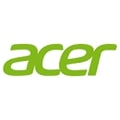
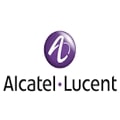
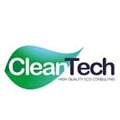

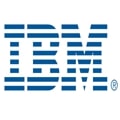

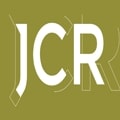


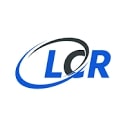
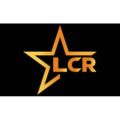
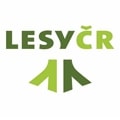
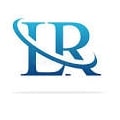


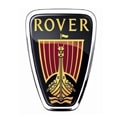
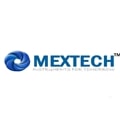

Contact Us
If you are interested in our products, services or partnering with us, please feel free to contact us by filling out this form:
or email us at sales@gaotek.com
